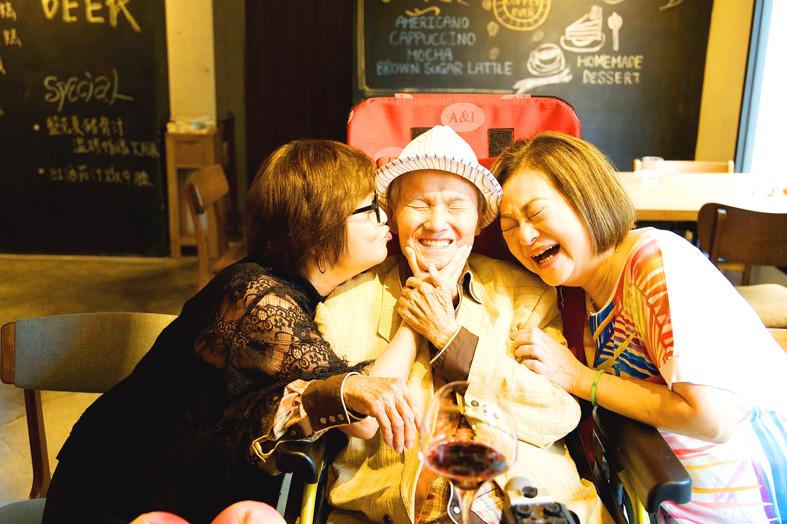Singer Wen Hsia (文夏), who had nearly 100 of his songs banned during the Martial Law era, died in his sleep at the age of 93 on Wednesday.
The legendary singer’s family announced his passing through the Taiwan U-Life Association.
Born Wang Jui-ho (王瑞河) on May 20, 1928, the singer was known throughout his career by his stage name Wen Hsia and the pen name “He Who Is Sorrowful.”

Photo courtesy of the Taiwan U-Life Association
Having studied music in Japan, the Tainan-born Wen Hsia was most well-known for covering countless Japanese songs in Hoklo (also known as Taiwanese), as well as writing his own music.
The most memorable of his covers included My Hometown in the Sunset (黃昏的故鄉), which was not only banned during martial law, but was hailed as a de facto anthem by political dissidents blacklisted by the Chinese Nationalist Party’s (KMT) authoritarian regime.
With nearly 100 of his songs forbidden during martial law and recognition of his musical contributions after martial law was lifted, Wen Hsia became known as the “king of banned songs,” and was cherished as a national treasure for the remainder of his life.
Wen Hsia was also an actor who starred in 11 movies.
His family said that Wen Hsia passed away in his sleep yesterday.
A Christian memorial service is to be held, with the date yet to be determined, the family said.

POSITIVE DEVELOPMENT: Japan and the US are expected to hold in-depth discussions on Taiwan-related issues during the meeting next month, Japanese sources said The holding of a Japan-US leaders’ meeting ahead of US President Donald Trump’s visit to China is positive news for Taiwan, former Japan-Taiwan Exchange Association representative Hiroyasu Izumi said yesterday. After the Liberal Democratic Party’s landslide victory in Japan’s House of Representatives election, Japanese Prime Minister Sanae Takaichi is scheduled to visit the US next month, where she is to meet with Trump ahead of the US president’s planned visit to China from March 31 to April 2 for a meeting with Chinese President Xi Jinping (習近平). Japan and the US are expected to hold in-depth discussions on Taiwan-related issues during the

‘LIKE-MINDED PARTNER’: Tako van Popta said it would be inappropriate to delay signing the deal with Taiwan because of China, adding he would promote the issue Canadian senators have stressed Taiwan’s importance for international trade and expressed enthusiasm for ensuring the Taiwan-Canada trade cooperation framework agreement is implemented this year. Representative to Canada Harry Tseng (曾厚仁) in an interview with the Central News Agency (CNA) said he was increasingly uneasy about Ottawa’s delays in signing the agreement, especially as Ottawa has warmed toward Beijing. There are “no negotiations left. Not only [is it] initialed, we have three versions of the text ready: English, French and Mandarin,” Tseng said. “That tells you how close we are to the final signature.” Tseng said that he hoped Canadian Prime Minister Mark Carney

President William Lai (賴清德) yesterday bestowed one of Taiwan’s highest honors on Saint Vincent and the Grenadines (SVG) Ambassador Andrea Clare Bowman in recognition of her contributions to bilateral ties. “By conferring the Order of Brilliant Star with Grand Cordon on Ambassador Bowman today, I want to sincerely thank her, on behalf of the Taiwanese people, for her outstanding contribution to deepening diplomatic ties between Taiwan and SVG,” Lai said at a ceremony held at the Presidential Office in Taipei. He noted that Bowman became SVG’s first ambassador to Taiwan in 2019 and

A man walks past elementary school artworks at the Taipei Lantern Festival in Ximen District yesterday, the first day of the event. The festival is to run from 5pm to 10pm through March 15.